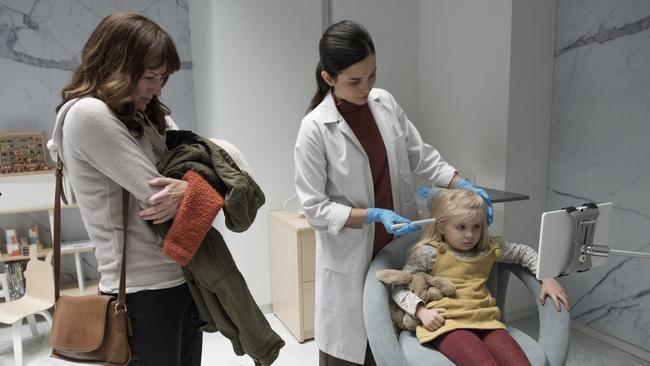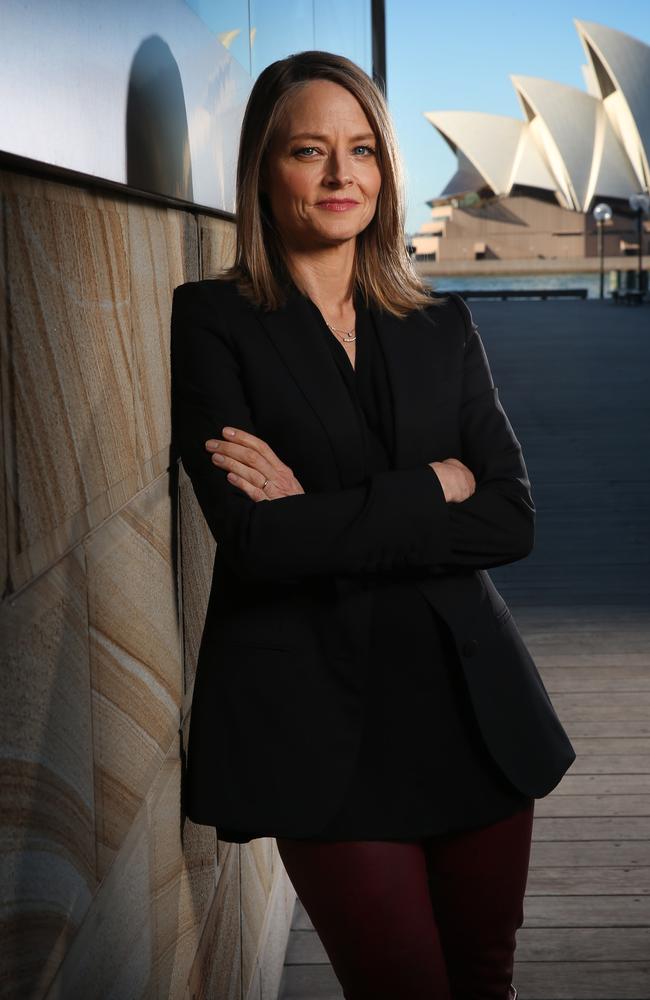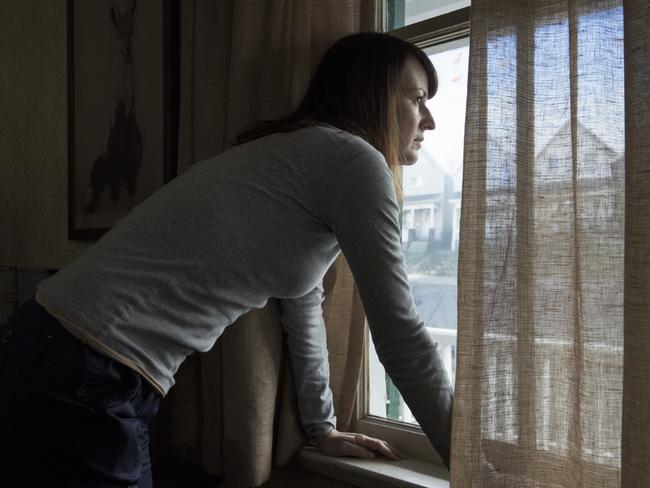Jodie Foster: We created the tech monster
WHEN Jodie Foster’s Black Mirror episode Arkangel dropped some critics were disappointed the storyline didn’t deviate far enough from our current reality — but does that make it even scarier than some of the show’s more far-fetched plots?

News
Don't miss out on the headlines from News. Followed categories will be added to My News.
WHEN Jodie Foster’s Black Mirror episode Arkangel dropped a couple of weeks ago, some critics were disappointed the storyline didn’t deviate far enough from our current reality — but does that make it even scarier than some of the show’s more far-fetched plots?
Written by British satirist Charlie Brooker, the Netflix anthology series, now into its fourth season, is like a tech version of The Twilight zone. Each episode explores a scenario where society’s dependence on media and technology goes wrong with devastating consequences.
The first episode, aired in 2011, revolves around the abduction of a princess and the kidnappers’ demands for the British prime minister to have sex with a pig on live TV for her safe return.
You’ll have to watch it to find out what happens next but it was shocking TV and fast built the series a cult following.
Foster was discussing a dearth of directing opportunities in feature length films with Netflix executive Cindy Holland when the latter asked if she would be interested in running with an episode of Black Mirror. The two-time Oscar winner had to admit she hadn’t heard of the series — other than “people saying something about the pig episode” — but after a quick rundown and the knowledge that each episode was a self-contained story “with a beginning, middle and an end”, Foster was sold.

Her iteration, one of six in the fourth season, stars Mad Men’s Rosemarie DeWitt as single mum Marie, who has her young daughter implanted with a chip that allows her to control what the girl sees and hears.
Sara’s vision is blurred and her hearing distorted when she is confronted by any one of a seemingly endless list of stimuli — dogs barking, kids fighting and even the first sign of blood all cause the censorship protocols to kick into action.
Even more frightening is the accompanying tablet that allows Marie to see what her daughter is witnessing at the touch of a button.
“Here she’s found a vessel, she’s found this beautiful thing that is everything she could ever want to be and not only can she control her experience so that she can create the best monster, but she also gets to look out through her eyes and have the experience of being this beautiful, powerful thing,” Foster says of Marie.
When Sara rebels, mother and daughter agree to turn off the parental controls but when the teenage years arrive, temptation becomes too great for Marie and she digs out the tablet and sets off a chain of events that have disastrous consequences.
At a time when there are myriad ways parents can control their children’s activities — online monitoring tools, GPS trackers, parental television controls — those critics are correct in saying Foster’s episode plays closer to reality than others in the series. But with technology advancing so quickly and parents feeling the need to cocoon their kids more than ever before, Arkangel gives a frightening insight into where this trend could be heading in the not too distant future.
“The heightened fear and the heightened need for control — those two things are becoming more and more prevalent in our culture,” Foster says.

“The more fears that we’re exposed to, the more fears that we’re handling every single day, asks us to exert more and more control over our lives and I think that’s the progression of culture.”
As parents themselves — Foster with two teenage boys and DeWitt the mum of two young girls — director and star understand that primal instinct to protect your kids above all else but are dismayed by the level some parents go to.
“I can understand the impulse as a mum, I have a four-year-old and a two-year-old, I’m only starting — I mean I say ‘don’t watch too many cartoons’ but we’re not into crazyville yet,” DeWitt says. “I don’t have baby monitors in their rooms or any of that stuff and people are like ‘what, you don’t?’ They’re sleeping, what am I going to do?”
DeWitt is determined to raise her daughters without smothering them, something she thinks is vitally important for their development into young women.
“I do really understand that (fear) in the beginning of their lives but it’s almost too much and we have to remember they’re not ours,” she says.
“They’re people that we live with, that we get to create a safe container for but we don’t get to control the experiences of their life or who they’re going to become. A lot of parenting that is completely out of your control.”
It’s easy to lay blame on this overbearing culture on the tools that have become so readily available, but Foster thinks the finger should be pointed somewhere much closer to home.
“Our technology is just doing what we asked it to do. We created it; we created this monster to do what we asked it to do,” she says.
“It doesn’t have feeling, it’s not a sentient being, it’s a reflection of what we wanted and I think that’s fascinating. That’s what’s so brilliant about Black Mirror — it’s a mirror into our own messed-up psyches.”
Black Mirror streams on Netflix


